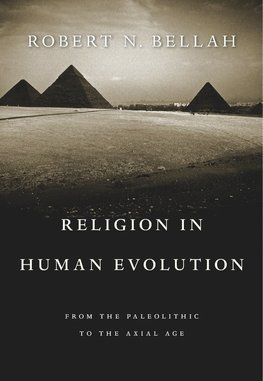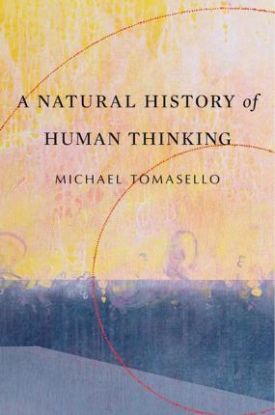Harvard University Press strana 2 z 4
vydavateľstvo
Privacys Blueprint
Every day, Internet users interact with technologies designed to undermine their privacy. Social media apps, surveillance technologies, and the Internet of Things are all built in ways that make it hard to guard personal information. And the law says this is okay because it is up to users to protect themselves--even when the odds are deliberately stacked against them.
In Privacy's Blueprint, Woodrow Hartzog pushes back against this state of affairs, arguing that the law should require software and hardware makers to respect privacy in the design of their products. Current legal doctrine treats technology as though it were value-neutral: only the user decides whether it functions for good or ill. But this is not so. As Hartzog explains, popular digital tools are designed to expose people and manipulate users into disclosing personal information.
Against the often self-serving optimism of Silicon Valley and the inertia of tech evangelism, Hartzog contends that privacy gains will come from better rules for products, not users. The current model of regulating use fosters exploitation. Privacy's Blueprint aims to correct this by developing the theoretical underpinnings of a new kind of privacy law responsive to the way people actually perceive and use digital technologies. The law can demand encryption. It can prohibit malicious interfaces that deceive users and leave them vulnerable. It can require safeguards against abuses of biometric surveillance. It can, in short, make the technology itself worthy of our trust.
Vypredané
33,73 €
35,50 €
Religion in Human Evolution
A New York Times Book Review Editors' Choice
An ABC Australia Best Book on Religion and Ethics of the Year
Distinguished Book Award, Sociology of Religion Section of the American Sociological Association
Religion in Human Evolution is a work of extraordinary ambition--a wide-ranging, nuanced probing of our biological past to discover the kinds of lives that human beings have most often imagined were worth living. It offers what is frequently seen as a forbidden theory of the origin of religion that goes deep into evolution, especially but not exclusively cultural evolution.
"Of Bellah's brilliance there can be no doubt. The sheer amount this man knows about religion is otherworldly...Bellah stands in the tradition of such stalwarts of the sociological imagination as Emile Durkheim and Max Weber. Only one word is appropriate to characterize this book's subject as well as its substance, and that is 'magisterial.'"
--Alan Wolfe, New York Times Book Review
"Religion in Human Evolution is a magnum opus founded on careful research and immersed in the 'reflective judgment' of one of our best thinkers and writers."
--Richard L. Wood, Commonweal
Vypredané
27,50 €
28,95 €
Rise and Fall of Neoliberal Capitalism
The financial and economic collapse that began in the United States in 2008 and spread to the rest of the world continues to burden the global economy. David Kotz, who was one of the few academic economists to predict it, argues that the ongoing economic crisis is not simply the aftermath of financial panic and an unusually severe recession but instead is a structural crisis of neoliberal, or free-market, capitalism. Consequently, continuing stagnation cannot be resolved by policy measures alone. It requires major institutional restructuring.
"Kotz's book will reward careful study by everyone interested in the question of
stages in the history of capitalism."
--Edwin Dickens, Science & Society
"Whereas [others] suggest that the downfall of the postwar system in Europe and the United States is the result of the triumph of ideas, Kotz argues persuasively that it is actually the result of the exercise of power by those who benefit from the capitalist economic organization of society. The analysis and evidence he brings to bear in support of the role of power exercised by business and political leaders is a most valuable aspect of this book--one among many important contributions to our knowledge that makes it worthwhile."
--Michael Meeropol, Challenge
Vypredané
21,38 €
22,50 €
Short History of European Law
Tamar Herzog offers a road map to European law across 2,500 years that reveals underlying patterns and unexpected connections. By showing what European law was, where its iterations were found, who made and implemented it, and what the results were, she ties legal norms to their historical circumstances and reveals the law's fragile malleability.
Vypredané
47,98 €
50,50 €
Leftism Reinvented
Left-leaning political parties play an important role as representatives of the poor and disempowered. They once did so by promising protections from the forces of capital and the market's tendencies to produce inequality. But in the 1990s they gave up on protection, asking voters to adapt to a market-driven world. Meanwhile, new, extreme parties began to promise economic protections of their own--albeit in an angry, anti-immigrant tone.
To better understand today's strange new political world, Stephanie L. Mudge's Leftism Reinvented analyzes the history of the Swedish and German Social Democrats, the British Labour Party, and the American Democratic Party. Breaking with an assumption that parties simply respond to forces beyond their control, Mudge argues that left parties' changing promises expressed the worldviews of different kinds of experts. To understand how left parties speak, we have to understand the people who speak for them.
Leftism Reinvented shows how Keynesian economists came to speak for left parties by the early 1960s. These economists saw their task in terms of discretionary, politically-sensitive economic management. But in the 1980s a new kind of economist, who viewed the advancement of markets as left parties' main task, came to the fore. Meanwhile, as voters' loyalties to left parties waned, professional strategists were called upon to "spin" party messages. Ultimately, left parties undermined themselves, leaving a representative vacuum in their wake. Leftism Reinvented raises new questions about the roles and responsibilities of left parties--and their experts--in politics today.
Vypredané
37,95 €
39,95 €
New Chimpanzee
Recent discoveries about wild chimpanzees have dramatically reshaped our understanding of these great apes and their kinship with humans. We now know that chimpanzees not only have genomes similar to our own but also plot political coups, wage wars over territory, pass on cultural traditions to younger generations, and ruthlessly strategize for resources, including sexual partners. In The New Chimpanzee, Craig Stanford challenges us to let apes guide our inquiry into what it means to be human.
With wit and lucidity, Stanford explains what the past two decades of chimpanzee field research has taught us about the origins of human social behavior, the nature of aggression and communication, and the divergence of humans and apes from a common ancestor. Drawing on his extensive observations of chimpanzee behavior and social dynamics, Stanford adds to our knowledge of chimpanzees’ political intelligence, sexual power plays, violent ambition, cultural diversity, and adaptability.
The New Chimpanzee portrays a complex and even more humanlike ape than the one Jane Goodall popularized more than a half century ago. It also sounds an urgent call for the protection of our nearest relatives at a moment when their survival is at risk.
Vypredané
33,73 €
35,50 €
Old Norse Mythology Comparative Perspectives
Old Norse mythology is elusive: it is the label used to describe the religious stories of the pre-Christian North, featuring such well-known gods as Odin and Thor, yet most of the narratives have come down to us in manuscripts from the Middle Ages mainly written by Christians. Our view of the stories as they were transmitted in oral form in the pre-Christian era is obscured.
To overcome these limitations, this book assembles comparisons from a range of theoretical and analytical perspectives across media, cultures, and disciplines. Fifteen scholars from a wide range of fields examine the similarities of and differences of the Old Norse mythologies with the myths of other cultures. The differences and similarities within the Old Norse corpus itself are examined to tease out the hidden clues to the original stories.
Vypredané
31,30 €
32,95 €
Middle Ages
Since the fifteenth century, when humanist writers began to speak of a middle period in history linking their time to the ancient world, the nature of the Middle Ages has been widely debated. Across the millennium from 500 to 1500, distinguished historian Johannes Fried describes a dynamic confluence of political, social, religious, economic, and scientific developments that draws a guiding thread through the era: the growth of a culture of reason. Beginning with the rise of the Franks, Fried uses individuals to introduce key themes, bringing to life those who have too often been reduced to abstractions of the medieval monk or knight. Milestones encountered in this thousand-year traversal include Europe s political, cultural, and religious renovation under Charlemagne; the Holy Roman Empire under Charles IV, whose court in Prague was patron to crowning cultural achievements; and the series of conflicts between England and France that made up the Hundred Years War and gave to history the enduringly fascinating Joan of Arc. Broader political and intellectual currents are examined, from the authority of the papacy and impact of the Great Schism, to new theories of monarchy and jurisprudence, to the rise of scholarship and science. The Middle Ages" is full of people encountering the unfamiliar, grappling with new ideas, redefining power, and interacting with different societies. Fried gives readers an era of innovation and turbulence, of continuities and discontinuities, but one above all characterized by the vibrant expansion of knowledge and an understanding of the growing complexity of the world."
Vypredané
26,13 €
27,50 €
Annotated Prison Writings of Oscar Wilde
"And I? May I say nothing, my lord?" With these words, Oscar Wilde's courtroom trials came to a close. The lord in question, High Court justice Sir Alfred Wills, sent Wilde to the cells, sentenced to two years in prison with hard labor for the crime of "gross indecency" with other men. As cries of "shame" emanated from the gallery, the convicted aesthete was roundly silenced.
But he did not remain so. Behind bars and in the period immediately after his release, Wilde wrote two of his most powerful works--the long autobiographical letter De Profundis and an expansive best-selling poem, The Ballad of Reading Gaol. In The Annotated Prison Writings of Oscar Wilde, Nicholas Frankel collects these and other prison writings, accompanied by historical illustrations and his rich facing-page annotations. As Frankel shows, Wilde experienced prison conditions designed to break even the toughest spirit, and yet his writings from this period display an imaginative and verbal brilliance left largely intact. Wilde also remained politically steadfast, determined that his writings should inspire improvements to Victorian England's grotesque regimes of punishment. But while his reformist impulse spoke to his moment, Wilde also wrote for eternity.
At once a savage indictment of the society that jailed him and a moving testimony to private sufferings, Wilde's prison writings--illuminated by Frankel's extensive notes--reveal a very different man from the famous dandy and aesthete who shocked and amused the English-speaking world.
Vypredané
18,00 €
18,95 €
Globalists
Neoliberals hate the state. Or do they? In the first intellectual history of neoliberal globalism, Quinn Slobodian follows a group of thinkers from the ashes of the Habsburg Empire to the creation of the World Trade Organization to show that neoliberalism emerged less to shrink government and abolish regulations than to redeploy them at a global level.
Slobodian begins in Austria in the 1920s. Empires were dissolving and nationalism, socialism, and democratic self-determination threatened the stability of the global capitalist system. In response, Austrian intellectuals called for a new way of organizing the world. But they and their successors in academia and government, from such famous economists as Friedrich Hayek and Ludwig von Mises to influential but lesser-known figures such as Wilhelm Röpke and Michael Heilperin, did not propose a regime of laissez-faire. Rather they used states and global institutions--the League of Nations, the European Court of Justice, the World Trade Organization, and international investment law--to insulate the markets against sovereign states, political change, and turbulent democratic demands for greater equality and social justice.
Far from discarding the regulatory state, neoliberals wanted to harness it to their grand project of protecting capitalism on a global scale. It was a project, Slobodian shows, that changed the world, but that was also undermined time and again by the inequality, relentless change, and social injustice that accompanied it.
Vypredané
33,73 €
35,50 €
Chimpanzees and Human Evolution
Knowledge of wild chimpanzees has expanded dramatically. This volume, edited by Martin Muller, Richard Wrangham, and David Pilbeam, brings together scientists who are leading a revolution to discover and explain human uniqueness, by studying our closest living relatives. Their conclusions may transform our understanding of human evolution.
Vypredané
47,45 €
49,95 €
Impeachment
As Benjamin Franklin famously put it, Americans have a republic, if we can keep it. Preserving the Constitution and the democratic system it supports is the public's responsibility. One route the Constitution provides for discharging that duty-a route rarely traveled-is impeachment.
Cass R. Sunstein provides a succinct citizens' guide to an essential tool of self-government. He illuminates the constitutional design behind impeachment and emphasizes the people's role in holding presidents accountable. Despite intense interest in the subject, impeachment is widely misunderstood. Sunstein identifies and corrects a number of misconceptions. For example, he shows that the Constitution, not the House of Representatives, establishes grounds for impeachment, and that the president can be impeached for abuses of power that do not violate the law. Even neglect of duty counts among the "high crimes and misdemeanors" delineated in the republic's foundational document. Sunstein describes how impeachment helps make sense of our constitutional order, particularly the framers' controversial decision to install an empowered executive in a nation deeply fearful of kings.
With an eye toward the past and the future, Impeachment: A Citizen's Guide considers a host of actual and imaginable arguments for a president's removal, explaining why some cases are easy and others hard, why some arguments for impeachment have been judicious and others not. In direct and approachable terms, it dispels the fog surrounding impeachment so that Americans of all political convictions may use their ultimate civic authority wisely.
Vypredané
8,08 €
8,50 €
Inventing the Immigration Problem
In 1907 the U.S. Congress created a joint commission to investigate what many Americans saw as a national crisis: an unprecedented number of immigrants flowing into the United States. Experts-women and men trained in the new field of social science-fanned out across the country to collect data on these fresh arrivals. The trove of information they amassed shaped how Americans thought about immigrants, themselves, and the nation's place in the world. Katherine Benton-Cohen argues that the Dillingham Commission's legacy continues to inform the ways that U.S. policy addresses questions raised by immigration, over a century later.
Within a decade of its launch, almost all of the commission's recommendations-including a literacy test, a quota system based on national origin, the continuation of Asian exclusion, and greater federal oversight of immigration policy-were implemented into law. Inventing the Immigration Problem describes the labyrinthine bureaucracy, broad administrative authority, and quantitative record-keeping that followed in the wake of these regulations. Their implementation marks a final turn away from an immigration policy motivated by executive-branch concerns over foreign policy and toward one dictated by domestic labor politics.
The Dillingham Commission-which remains the largest immigration study ever conducted in the United States-reflects its particular moment in time when mass immigration, the birth of modern social science, and an aggressive foreign policy fostered a newly robust and optimistic notion of federal power. Its quintessentially Progressive formulation of America's immigration problem, and its recommendations, endure today in almost every component of immigration policy, control, and enforcement.
Vypredané
28,45 €
29,95 €
Immigration Economics
Millions of people--nearly 3 percent of the world's population--no longer live in the country where they were born. Every day, migrants enter not only the United States but also developed countries without much of a history of immigration. Some of these nations have switched in a short span of time from being the source of immigrants to being a destination for them. International migration is today a central subject of research in modern labor economics, which seeks to put into perspective and explain this historic demographic transformation.
Immigration Economics synthesizes the theories, models, and econometric methods used to identify the causes and consequences of international labor flows. Economist George Borjas lays out with clarity and rigor a full spectrum of topics, including migrant worker selection and assimilation, the impact of immigration on labor markets and worker wages, and the economic benefits and losses that result from immigration.
Two important themes emerge: First, immigration has distributional consequences: some people gain, but some people lose. Second, immigrants are rational economic agents who attempt to do the best they can with the resources they have, and the same holds true for native workers of the countries that receive migrants. This straightforward behavioral proposition, Borjas argues, has crucial implications for how economists and policymakers should frame contemporary debates over immigration.
Vypredané
53,20 €
56,00 €
Natural History of Human Morality
A Natural History of Human Morality offers the most detailed account to date of the evolution of human moral psychology. Based on extensive experimental data comparing great apes and human children, Michael Tomasello reconstructs how early humans gradually became an ultra-cooperative and, eventually, a moral species.
Vypredané
20,85 €
21,95 €
Natural History of Human Thinking
Tool-making or culture, language or religious belief: ever since Darwin, thinkers have struggled to identify what fundamentally differentiates human beings from other animals. In this much-anticipated book, Michael Tomasello weaves his twenty years of comparative studies of humans and great apes into a compelling argument that cooperative social interaction is the key to our cognitive uniqueness. Once our ancestors learned to put their heads together with others to pursue shared goals, humankind was on an evolutionary path all its own
Vypredané
20,85 €
21,95 €















